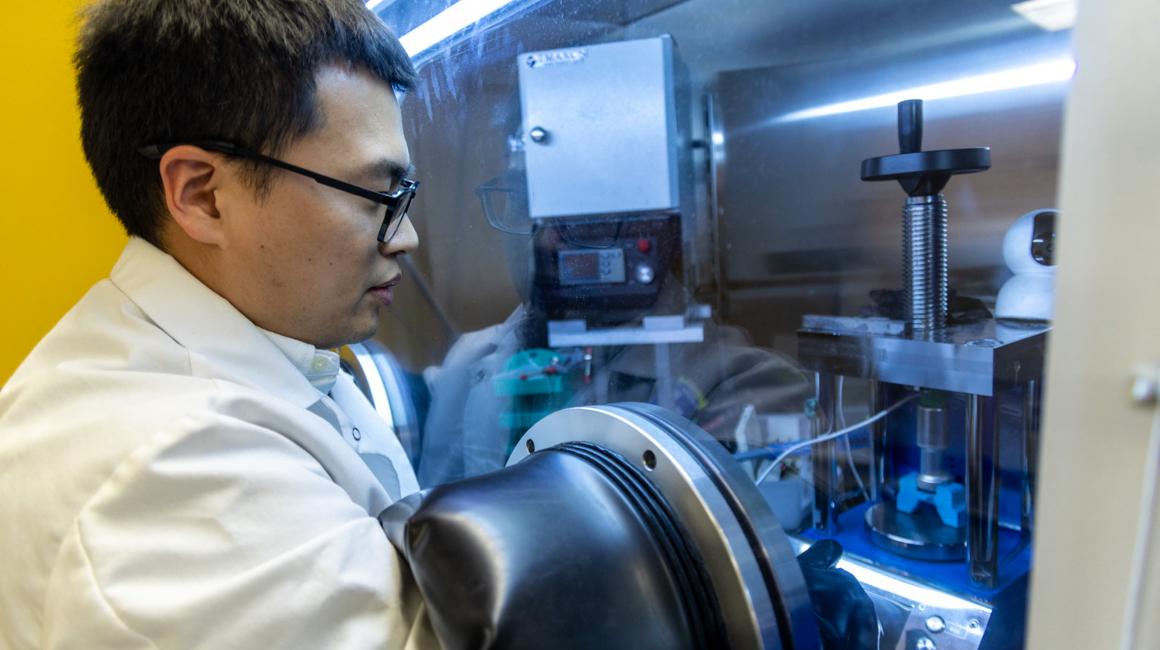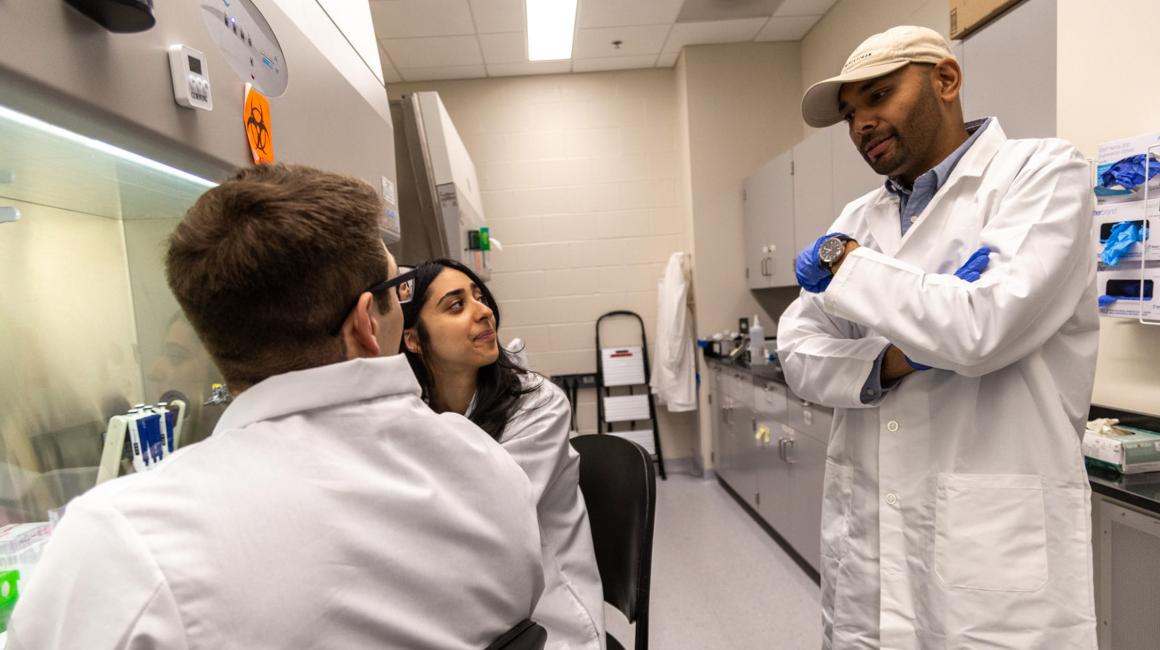
About the Department
The Department of Mechanical Engineering offers accredited and nationally ranked undergraduate and graduate degrees in Mechanical Engineering, Bioengineering, Automotive and Mobility Systems Engineering, and Materials Science and Engineering. Our curriculum offers comprehensive and rigorous education rich in design, research, and interdisciplinary opportunities leading to successful careers in industry, government, higher education, and non-profit organizations both in southeast Michigan and worldwide.
Mechanical engineering is one of the oldest engineering fields. It is also one of the broadest in scope, for it is not restricted to any particular technology or particular type of devices. Mechanical engineers understand the basic principles of statics and dynamics, thermodynamics, heat transfer and fluid flows, control, instrumentation, and other areas, and know how to use these principles to design and manufacture technical systems.
The field is continuously evolving with new technologies bringing new challenges, new knowledge, and new job opportunities. One example is the automotive industry, which has always employed many mechanical engineers. The work they do and the problems they solve now are completely different than what they were fifty or even twenty years ago. Another example is the sustainable energy generation. Neither wind nor solar energy would be possible without mechanical engineers.
Bioengineering is a cross-disciplinary field, in which methods of various areas of engineering are applied to solve problems in medicine, biology, health care, and, in general, to improve the quality of human life. The expertise of a bioengineer combines knowledge of engineering principles with the understanding of living systems.
Bioengineering is a rapidly growing profession with expanding career opportunities. Bioengineers work on medical and health care devices (artificial organs, imaging systems, surgery instruments and so on), medical procedures (such as rehabilitation), bio-processing technologies in pharmaceutical and other industries, and other biology-related problems (such as safety and ergonomics).
The automotive industry is currently in the process of fundamental change, probably the most significant one in its history after the beginning of mass production. Electric and autonomous vehicles are the two most noticeable aspects of the change, but there are other rapid developments such as the introduction of mobility as an overarching business and engineering concept, vehicle connectivity, intelligent control systems, new lightweight materials, efficient powertrains, better manufacturing techniques, and improved comfort and safety.
The automotive and mobility engineering is an interdisciplinary field that integrates the knowledge of other technical and non-technical disciplines. In addition to expertise in a specialized area, an automotive engineer must understand broader issues and have the skill of synthesizing diverse technical approaches into a system-wide solution.
Materials science and engineering is an interdisciplinary field that enables advances in the development and application of materials in engineering practice. Technological innovations are directly linked to the understanding of materials and are required to meet next generational challenges. Advances in nanomaterials, energy storage materials (for example, for electric batteries), functional and sensory materials, lightweight structural materials, etc., will enable further development of practically all technology fields.
‘Healing’ batteries with Ultrasonics

Two mechanical engineering postdoc research fellows have discovered a novel way to solve a pesky challenge with next-generation solid-state batteries. This story by Lou Blouin summarizes research that Dr. Lei Chen and one of our Post Doc research fellows Yaohong Xiao have made towards improving the stability of lithium ion batteries using a similar method to ultrasonic welding. If you are interested please read the full article here.
How organ-on-a-chip technology is changing research of human diseases

We would like to highlight this article regarding Dr. Raghunandan's research into the "Organ-on-a-chip" technology. This research creates a more close to reality test environment for biomedical procedures, aiming to replace simple human cell cultures and mouse experiments. If you would like to learn more about this process and how it has been implemented so far please check the full article.
Department Staff
Rebekah Awood
Sherry Boyd
Nicole Engel
Advisory Boards
The ME department continually seeks interactions with business, industries, and government through its Industrial Advisory Boards. Our advisory boards are composed of industry professionals who provide input on curriculum, potential employment for students, research opportunities for faculty, and a perspective on future challenges requiring collaboration.
Subha Bhattacharyya, PhD
Principal Engineer
Medtronic PLC
Nilay Chakraborty, PhD
Director of Cryobiology and BioNexus Principal Engineer
American Type Culture Collection (ATCC)
Mark Cheng, PhD
Professor
University of Alabama
Sarah Sherman PhD
Senior Associate
Exponent
Jan Stegemann, PhD
Professor of Biomedical Engineering
University of Michigan
Chelsea Revita
Human Factors Engineer
Ford
Hugh Blaxill
Dumarey USA LLC
General Manager and Head of Engineering
Jason Hoon Lee
Hyundai-Kia American Technical Center, Inc.
Senior Manager Vehicle Control Software
Kelly Pietras
Formerly with Magna
Isidoro Mazzitelli
Head of Industrial Engineering at NSK
Brian Schweitzer
Yazaki
Chief Engineer: Electronics, Components, Instrumentation & Core Engineering
Steve Przesmitzki
USCAR
Executive Director
Qigui Wang
General Motors
GM Technical Fellow, Advanced Materials Technology
Lisa R Sheth
Ford Motor Company
Manager of Advanced Product Development & Technology Operation
Jessey Bouchard
Aramco Americas
Byungho Lee
Director, Electrified Propulsion Development
Hyundai-Kia America Technical Center, Inc.
Gregg Overfield
Director
Automated System Development
Mike Romanowski
Program Supervisor
Office of Budget at Detroit Public Schools
Tim Slusser
City of Detroit
Office of Mobility Innovation
















